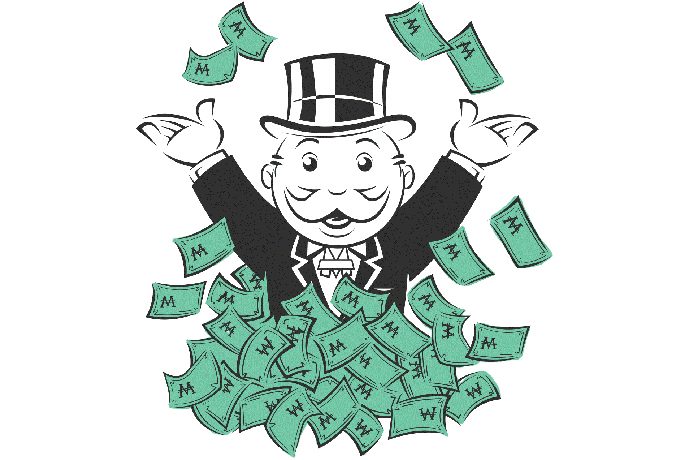For almost ten years now, the folks at Sojourners and other progressive evangelical outfits have been reminding us that “budgets are moral documents.” All well and good. I agree. But I will add that tax systems are at least as revealing, perhaps more so, when it comes to the ethical bearings of any state or nation
Let’s start with a quick reality check. The U.S. tax system is already notorious for being a Swiss cheese of loopholes that invite and encourage tax avoidance by corporations and the wealthy. That reality, an open secret in Washington, immediately falsifies the idea that U.S. corporate tax rates are too high in relation to those of other developed countries. Our effective corporate rates are actually much lower than those of comparable countries.
Falsification #2 concerns the alleged link between lower taxes and job creation: the hoary trickle-down theory that refuses to die, despite multiple studies showing no evidence that the investor class will ever use tax benefits to build factories in Ohio or West Virginia.
Trump’s plan calls for a “territorial” system whereby multinational corporations based here will pay basically no tax on the repatriated earnings from foreign operations. The last time such corporations were given a tax holiday on accumulated overseas profits, they used the money to pay themselves in the form of share buybacks and dividends. The biggest corporate beneficiaries of 2004’s repatriation bonanza actually cut their domestic employment levels.
Falsification #3, another completely empty meme, insists that domestic economic growth has been slower than it needs to be because of confiscatory taxation. In fact, U.S. corporations are already absolutely awash in capital (why do you suppose the Dow-Jones index keeps setting records?), in part because of the historically low cost of borrowing (so low, in fact, that many corporations have routinely been paying their shareholders from borrowed funds).
As tax expert Edward Kleinbard put it to the New York Times, Trump’s proposal is “a very cynical document”:
The extraordinary thing about the proposal is that we know that it loses trillions of dollars in revenue, yet at the same time the only people we can identify as guaranteed winners are the most affluent.
Bear in mind that the GOP plan actually raises taxes for the poorest wage earners while ensuring that future revenue shortfalls, along with a $1.5 to $2 trillion spike in the deficit, will be used to further reduce public services and safety net benefits in the usual pincers-like operation.
I could go on, but you already get the point: as with Obamacare repeal, what unites Trump, McConnell, and Ryan on the subject of tax “reform” amounts to a vast tissue of lies. Cruel lies, when you consider the new economic violence against the weakest and most vulnerable that they portend.
What is actually at stake here is the question asked by Isaiah about 2700 years ago: “What do you mean by crushing my people, by grinding the face of the poor?”
Or as a later prophet—Franklin Roosevelt—put it: “We have always known that heedless self-interest was bad morals; we know now that it is bad economics.”
I cite Roosevelt for a reason. I seriously doubt that today’s Democrats, deeply indebted themselves to the top 5% of income earners for their campaign cash, will find the moxie to fight the plutocrats on this one. Unlike Roosevelt, they will decline to be traitors to their class. Yes, for immediate political advantage they will point to the extent to which Trump himself will benefit if the “reform” package goes through. But they won’t touch the larger premise, which is that you can meet the needs of the poor and the working class by doing huge favors to the rich. They won’t let themselves be troubled by another of FDR’s prophetic utterances:
“The test of our progress is not whether we add more to the abundance of those who have much; it is whether we provide enough for those who have little.”
And meantime, where are the “budgets are moral documents” faith leaders on this most fundamental test of morality?
I will give the last word to another great Hebrew prophet—Jeremiah—who deeply understood the inner dynamics of national corruption:
From the least to the greatest of them, everyone is greedy for unjust gain; and from prophet to priest everyone deals falsely. They have treated the wound of my people carelessly, saying ‘Peace, peace’ when there is no peace. They have acted shamefully, they have committed abomination; yet they were not ashamed.
Oh, and you may remember what Jeremiah also said about what happens to nations that completely lose their moral compass: poof, they are laid waste, they become a desolation. Ancient Judah was not immune from the consequences of corruption, and neither are we.
UPDATE:
After this piece was posted last Thursday, the respected nonpartisan Tax Policy Center fleshed out just how much of the cash will go straight to the very top: over the course of ten years, 80% of the benefits will line the silk pockets of the 1%.
A cynic might ask how they slipped up and let a full 20% go to the rabblement.
But let it not be said that these guys are slouches when when it comes to self-dealing and cashing in. According to the TPC analysis, their plan will actually hurt some of the merely affluent (those in the $150,000 to $300,000 range) in order to ensure that those at the extreme high end can totally pig out.




